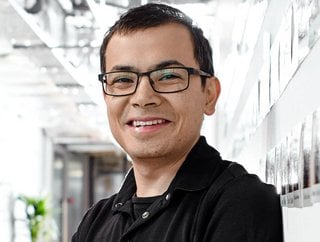Demis Hassabis: From chess prodigy to AI leader

As CEO and Co-Founder of Google DeepMind, Demis Hassabis is one of the most influential experts in the field of AI.
A child chess prodigy, at the age of 17 Hassabis joined the computer game company Bullfrog Productions, where he worked as a designer on science fiction game Syndicate. Here, Hassabis was the lead programmer for the highly influential Theme Park, released in 1994, which won the industry’s Golden Joystick Award.
In 2010, Hassabis founded the AI company DeepMind Technologies with Shane Legg and Mustafa Suleyman. The trio began working on AI technology by teaching it how to play old games from the 1970s and 80s, with a goal to create a general-purpose AI that can be useful for almost anything.
Hassabis attended Cambridge University where he studied for his computer science undergraduate degree, earning a double first-class honours.
At the start of 2014, Google announced the company had acquired DeepMind for $500m and agreed to take over DeepMind technologies. With Google, DeepMind established an artificial intelligence ethics board.
Later that same year, DeepMind received the ‘Company of the Year’ award from Cambridge Computer Laboratory. It also published research on computer systems that are able to play the board game ‘Go’.
AlphaGo, a computer program developed by DeepMind, beat the European Go champion Fan Hui in 2015. This was the first time an AI defeated a professional Go player. Go is considered much more difficult for computers to win. Due to the high number of possibilities within the game, it is prohibitively difficult for traditional AI methods such as brute force.
With Amazon, Google, Facebook, IBM and Microsoft, in 2016 DeepMind became a founding member of Partnership on AI, an organisation dedicated to the society-AI interface.
AlphaFold makes headlines
Last year DeepMind made headlines with AlphaFold, which is capable of deciphering the structure of almost all proteins known to science.
The company partnered with the European Molecular Biology Laboratory (EMBL) to make the most complete and accurate database yet of predicted protein structure models for the human proteome.
DeepMind announced the data would be made freely available to the scientific community, allowing scientists to carry out work that would have previously taken years in just a few days.
“Our goal at DeepMind has always been to build AI and then use it as a tool to help accelerate the pace of scientific discovery itself, thereby advancing our understanding of the world around us,” said Hassabis at the time.
“For our team, AlphaFold’s success was especially rewarding, both because it was the most complex AI system we’d ever built, requiring multiple critical innovations, and because it has had the most meaningful downstream impact.”.
Google DeepMind
In April, Hassabis announced that DeepMind, which was acquired by Google in 2014, would henceforth be known as Google DeepMind, with the organisation joining forces with the Google Brain team to ‘accelerate progress towards a world in which AI helps solve the biggest challenges facing humanity’.
“When Shane Legg and I launched DeepMind back in 2010, many people thought general AI was a farfetched science fiction technology that was decades away from being a reality,” Hassabis said in an announcement to DeepMind employees.
“Now, we live in a time in which AI research and technology is advancing exponentially. In the coming years, AI – and ultimately AGI – has the potential to drive one of the greatest social, economic and scientific transformations in history.
“Through Google DeepMind, we are bringing together our world-class talent in AI with the computing power, infrastructure and resources to create the next generation of AI breakthroughs and products across Google and Alphabet, and to do this in a bold and responsible way. The research advances from the phenomenal Brain and DeepMind teams laid much of the foundations of the current AI industry, from Deep Reinforcement Learning to Transformers, and the work we are going to be doing now as part of this new combined unit will create the next wave of world-changing breakthroughs.”
- Nvidia and Digital Realty: Advancing the Next Era of AICloud & Infrastructure
- Demis Hassabis Knighthood: From Tech Prodigy, to AI LeaderMachine Learning
- Who is Mustafa Suleyman? DeepMind Founder Turned AI CEOMachine Learning
- The Impact of AI on Cybersecurity: A Need for PreparednessAI Strategy






